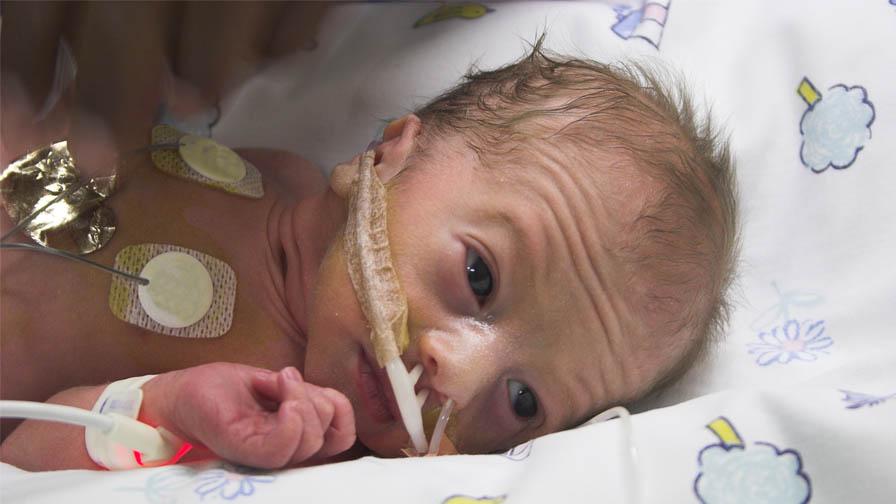
Helping determine when to start milk feeds for sick premature babies
Premature babies have digestive systems that are not yet fully developed and are vulnerable to infection. When fed with milk, those who have not grown in the womb properly are recognised to be at risk of developing a condition called necrotising enterocolitis which causes serious inflammation of the bowel wall. Up to 3,000 babies are affected by this a year in the UK; tragically 35 per cent of them will die.
To guard against this, a premature baby is often fed intravenously for the first few days of its life but this carries different risks of infection. To date, there hasn’t been an established consensus on the best way to feed premature babies, so Action Medical Research funded a trial to explore this problem. The trial aimed to establish whether it is better to feed premature babies their first milk feeds within two days of birth, or feed them intravenously and delay milk feeding for up to six days.
Results show that babies who received early milk feeding achieved full milk feeds faster and the incidence of necrotising enterocolitis did not increase, whereas the late feeding group needed a longer course of intravenous feeding and a longer stay in intensive care. Early feeding therefore appears to be the better way to manage high-risk premature babies which looks set to have a major impact on care.

